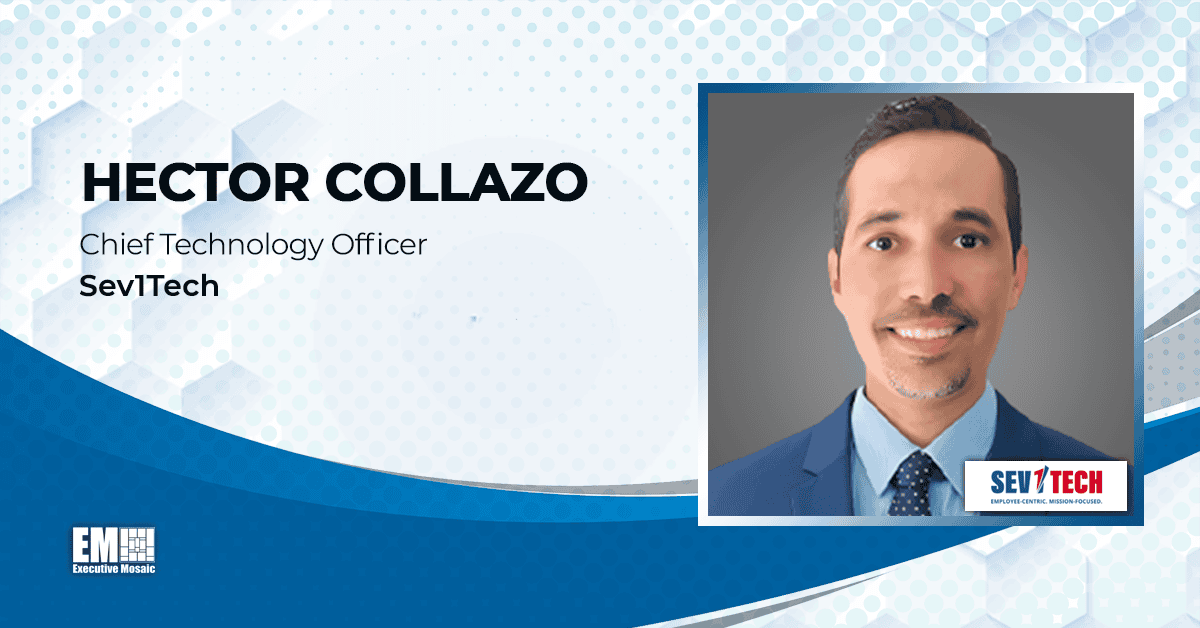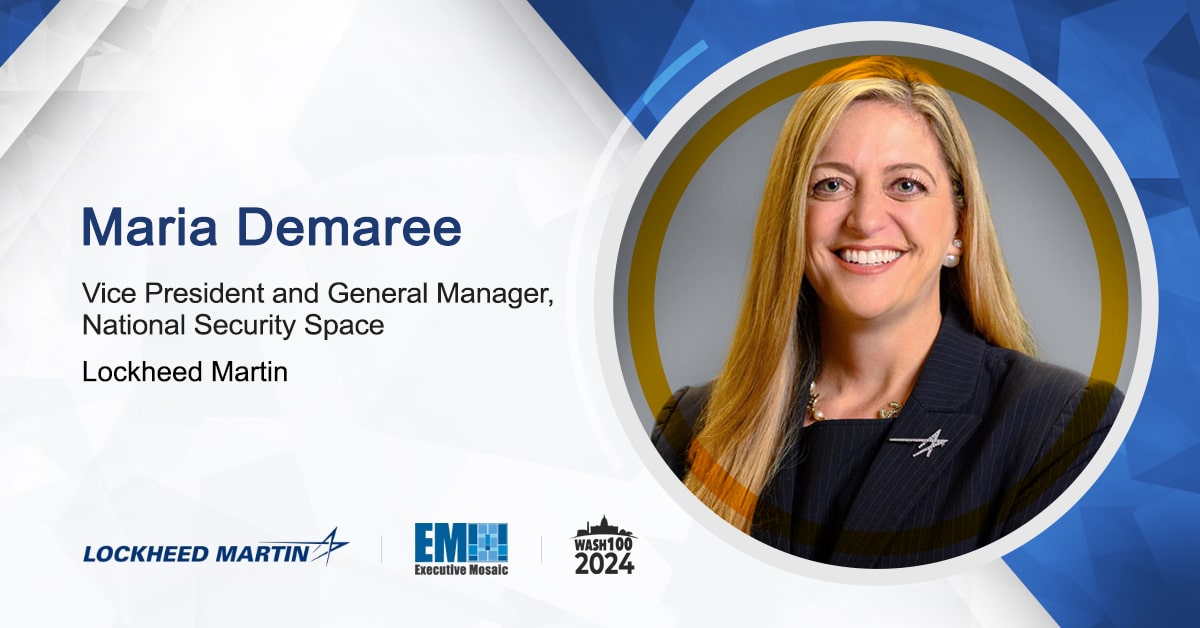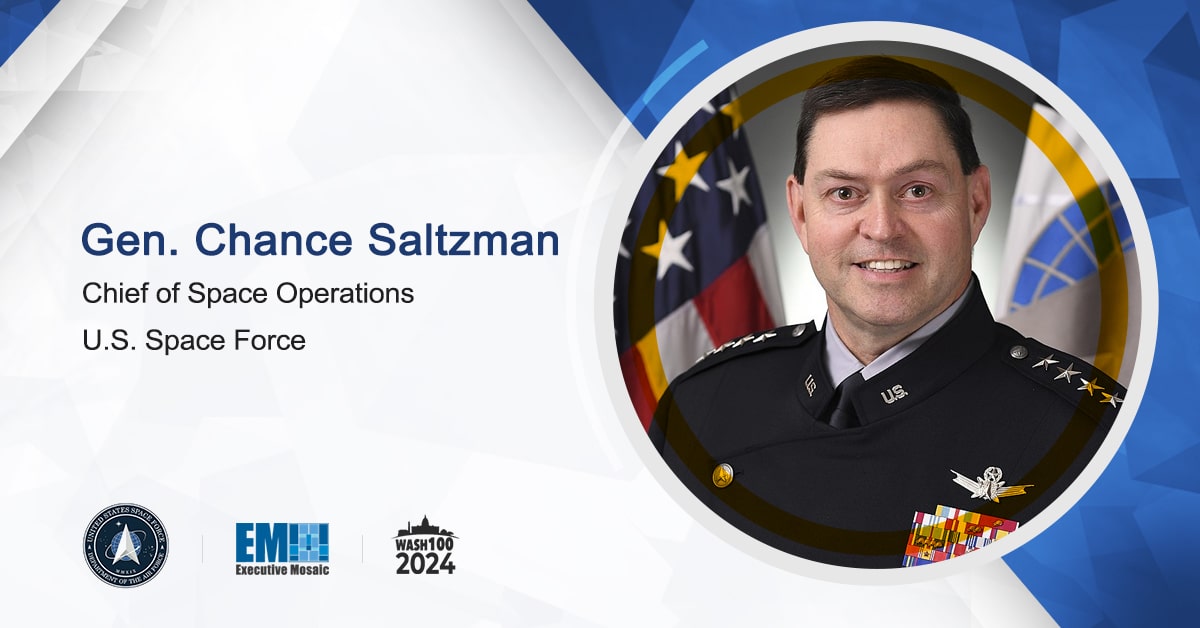Since his days as an engineer-in-training at the University of Puerto Rico, Hector Collazo has immersed himself in all things technology. He has gone on to build an over two-decade career implementing, engineering and managing various tools and innovative strategies to strengthen businesses and customer experiences.
A consummate project manager, Collazo has mastered all stages of tech development in his work, first at telecommunications companies and eventually at government and defense contractors such as JT3 LLC, Agile Defense and now, Sev1Tech, where he came aboard as vice president of mission technology and innovations in March of 2022. Collazo soon ascended to chief technology officer at the fast-growing company in August the same year.
In his current role, he oversees and directs the company’s High Impact Technology, Science and Engineering team, which is responsible for constructing and implementing Sev1Tech’s long-term technology strategy.
Collazo sat down with GovCon Wire for an Executive Spotlight interview to highlight up-and-coming ventures like model-based systems engineering and to share his perspective on the global defense and space ecosystems, among other topics.
Where are you seeing opportunities for expansion in your company’s portfolio? What new capabilities or markets are you eyeing?
Sev1Tech leadership focuses on strategic diversification into new capabilities and services to help our customers and sustain our long-term growth. This growth strategy requires carefully investing in technologies aligning with the company’s core competencies to ensure successful expansion. One of the areas we are focusing heavily on is model-based systems engineering or MBSE. We know the importance of systematically approaching complex systems designs using visual modeling techniques and computer-based tools.
MBSE is the foundation, providing the structured modeling and simulation framework necessary for creating a digital twin—a virtual representation of a physical system or product. By creating virtual replicas of physical assets and systems, we gain real-time insights, enhance predictive maintenance, optimize performance and reduce downtime. These digital twins enable us to make data-driven decisions, improve operational efficiency and ultimately deliver higher quality products and services to our customers. And that is exactly what we are doing for our customers. We are successfully implementing digital twin technology across our customers’ operations and maturing our MBSE/digital twin/digital thread capabilities as one of our superpowers.
What’s your outlook on the global defense landscape? What significant changes or trends are you seeing and how are those factors moving to the GovCon market?
The global defense landscape is experiencing a rapid dynamic transformation driven by several trends. The emergence of new geopolitical challenges and threats, such as cyber warfare, hybrid conflicts and supply chains, have compelled nations to invest heavily in defense modernization and cybersecurity. This shift toward more agile and technologically advanced defense systems presents lucrative opportunities for government contractors specializing in cutting-edge technologies, data security and digital transformation.
There is a growing emphasis on international cooperation and joint defense initiatives. Multinational defense projects and alliances are becoming more common, leading to an increased demand for interoperable solutions and cross-border collaboration among contractors. This emphasis is reflected in the US-led Combined Joint All-Domain Command and Control effort that seeks to combine efforts with international partners as well as different military commands to make quick decisions on the battlefield in a contested or no-comm environment.
Furthermore, the rapid pace of innovation, especially in artificial intelligence, autonomous systems and space exploration, is reshaping the defense landscape. GovCon firms specializing in these areas are well-positioned to provide critical support to defense agencies seeking to leverage these technologies.
The evolving global defense landscape is guided by technological advancements, evolving security challenges and a shift toward collaborative approaches. GovCon companies that adapt to these changes and invest in cutting-edge solutions stand to play a pivotal role in addressing the evolving needs of defense agencies worldwide and keeping America safe.
What are your thoughts on how we can improve cross-domain weapons systems or accelerate the kill chain and its integrated lethality?
Data standards play a pivotal role in fostering weapon systems’ cross-domain interoperability to accelerate our command and control decisions and kill chain. Standardized data formats and protocols enable smoother collaborations, reduce integration challenges and enhance the efficiency and accuracy of data exchange. Data standards are the linchpin for unlocking the full potential of MBSE and digital twin technologies. With standardized data formats and protocols, MBSE models can seamlessly integrate with various tools and systems, streamlining the design and simulation process. This interoperability ensures that our C2 team can efficiently collaborate, share insights, simulate different scenarios to get the higher probability of success and make informed decisions at the speed of relevance.
What are the biggest threats in space; and how are we addressing those threats to maintain our space superiority, especially during this era of increasing competition?
Satellite hacking threats represent a growing concern in our space superiority. Satellites play a pivotal role in global communications, navigation, weather forecasting and military operations. As such, they have become attractive targets for malicious actors such as state-sponsored actors seeking to disrupt critical services, compromise sensitive data or engage in cyber espionage. These threats can take various forms, including jamming signals to disrupt communication, intercepting data transmission or gaining unauthorized access to satellite systems.
The potential consequences are significant, ranging from disrupting financial markets to compromising national security. Mitigating satellite hacking threats is not easy; it takes a robust cybersecurity posture, international cooperation and ongoing vigilance to protect the vital infrastructure that relies on these orbital assets. To counter these threats, the space industry and governments are focusing on enhancing satellite cybersecurity (as with strategies like zero trust), implementing robust encryption protocols and developing monitoring systems to detect and respond to any unauthorized access or interference to maintain our space superiority.







